Ugandan chapati cooking
Though I found cooking classes pretty much everywhere I looked in Southeast Asia (e.g. Bali, Vietnam, Cambodia, Laos, and Thailand), I discovered in India that they tended to cluster around a few tourist-friendly cities (like Udaipur and McLeod Ganj). When I got to Nairobi and looked for the same, I turned up empty. I’m not sure whether that results from a lack of interest in African cooking, or simply a lack of development in that segment of the tourist market.
In any event, I was amused to discover a cooking class of sorts—more of a cooking lesson—available right outside the gates of our campground in Jinja, Uganda. On our day off after rafting, in addition to resting our sore, sunburnt bodies, I signed up for a chapati-making lesson at the immodestly-named: Bujagali Chapati Company.
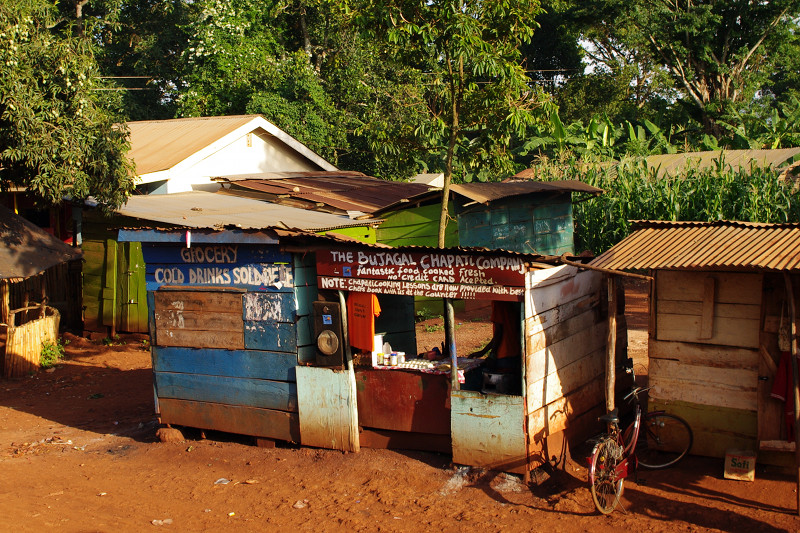
The East African chapati closely resembles its cousin in India, the parantha, a chapati that’s lightly fried in oil. In Uganda the chapati is frequently rolled up with a vegetable omelette, popularly known as a rolex (apparently short for “rolled eggs”), and reminds me of the Hot Kati Roll I had in Kolkata (without the chicken curry of course).
The cooking lesson started with making the dough: 2kg of white flour with 3 “cups” of water and a handful of salt—which makes enough for 20-30 chapatis. To my eyes, their cups resembled about one and a half US cups, so your mileage may vary. The mixture is kneaded until the dough becomes uniform.
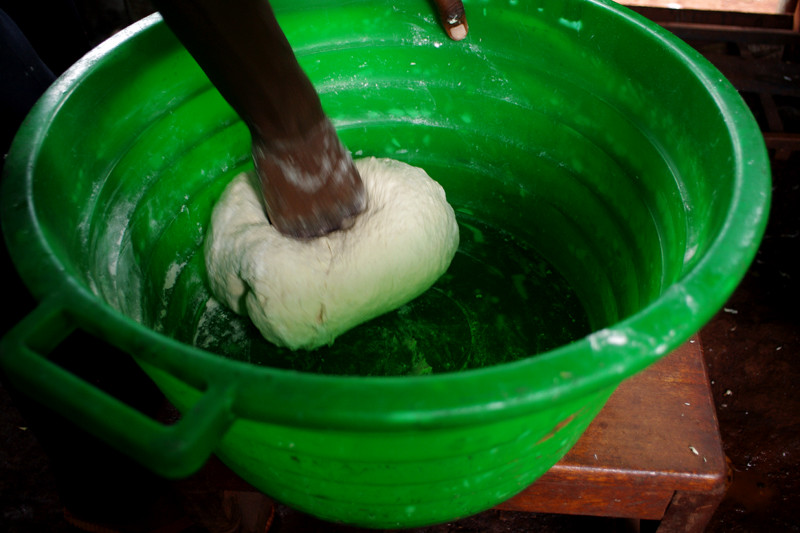
After letting the dough rest for a short while, they demonstrated the technique for forming the correct size ball per chapati. First rub a little bit of vegetable oil on the hands. Then squeeze a handful dough in a fist so it comes out in a ball between the curled index finger and thumb. Once it’s about the size of an egg or a golf ball, pinch it off at the bottom.
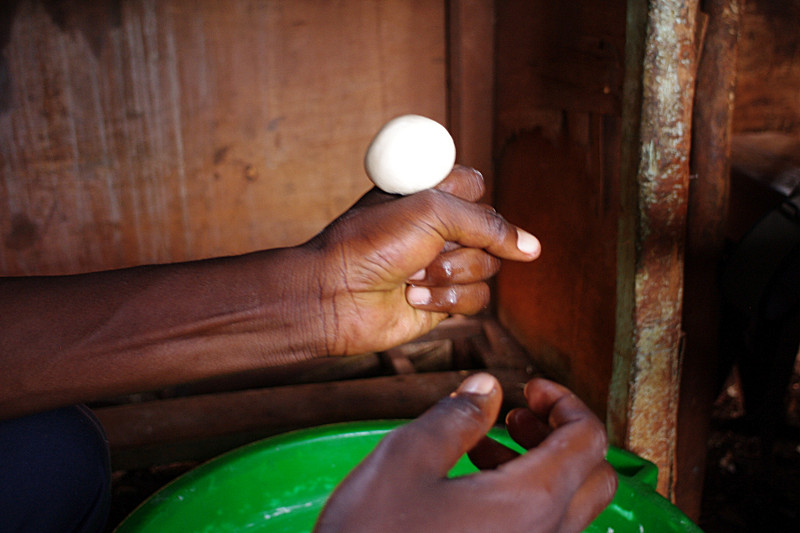
The ball is rolled out, a spoon of oil is put on a hot cast iron skillet (theirs heated by charcoal) and the circle of dough is put on to cook with another teaspoon or two of oil on top. The chapati is flipped and spun until cooked through—with light brown spots on both sides.
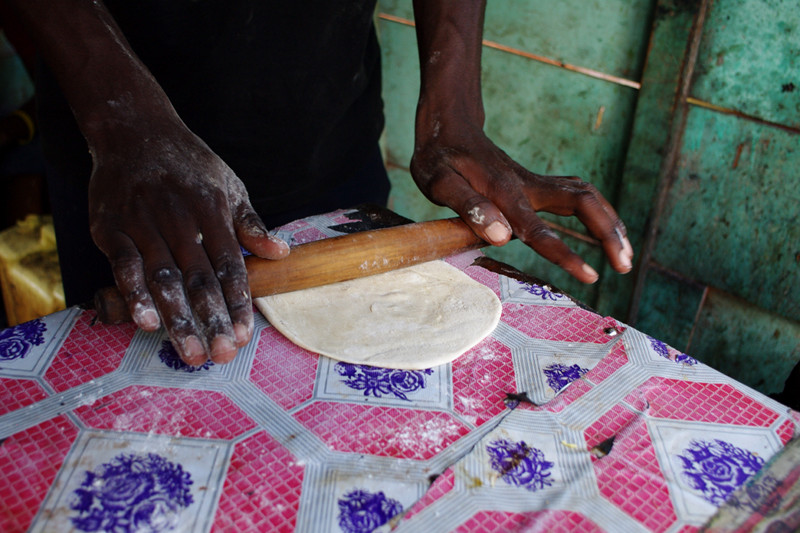
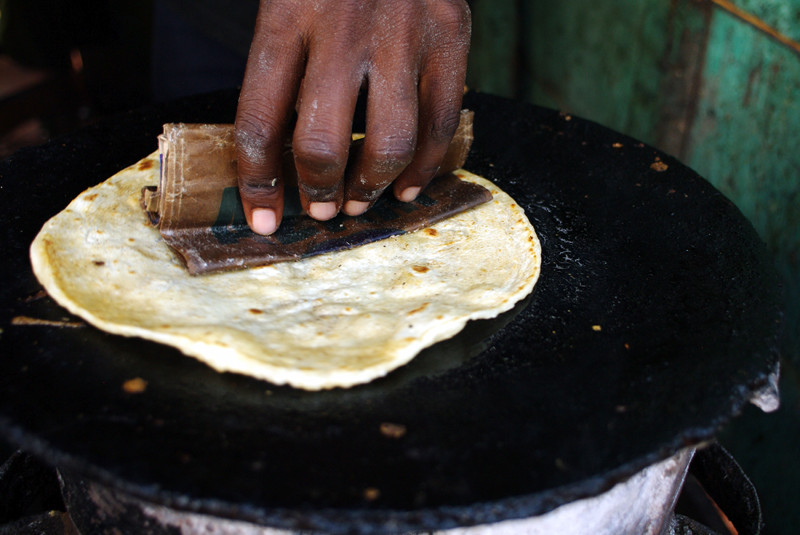
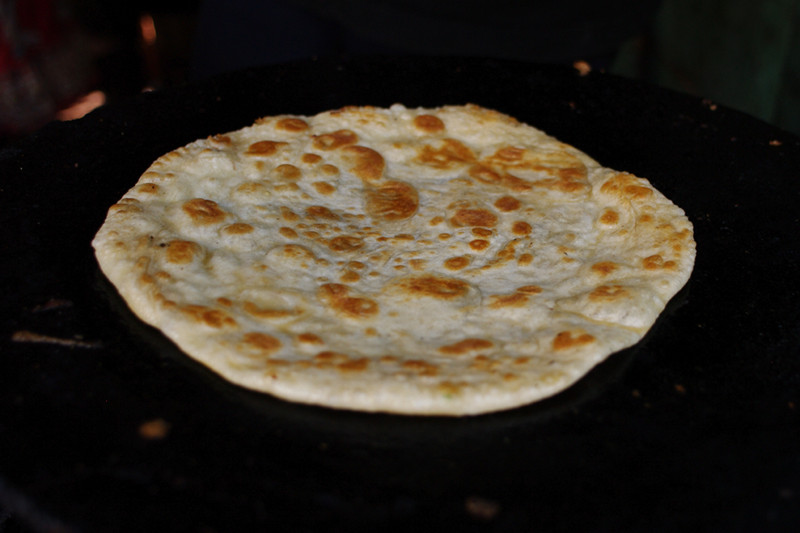
They cooked the omelette on the same skillet, a combination of egg, shredded cabbage, onion, and tomato. The omelette is flipped, the chapati is laid on top (to warm up) and then both are rolled together—usually within a page torn from an old newspaper. I couldn’t help but add avocado to mine. Delicious!
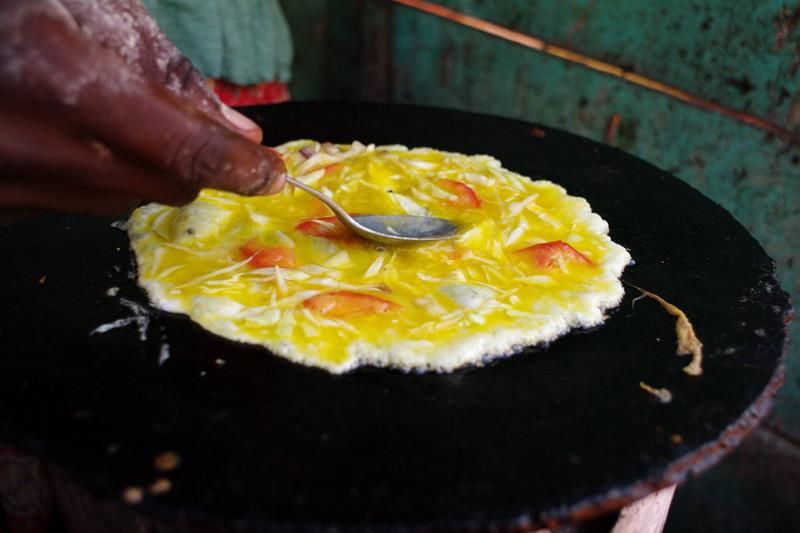
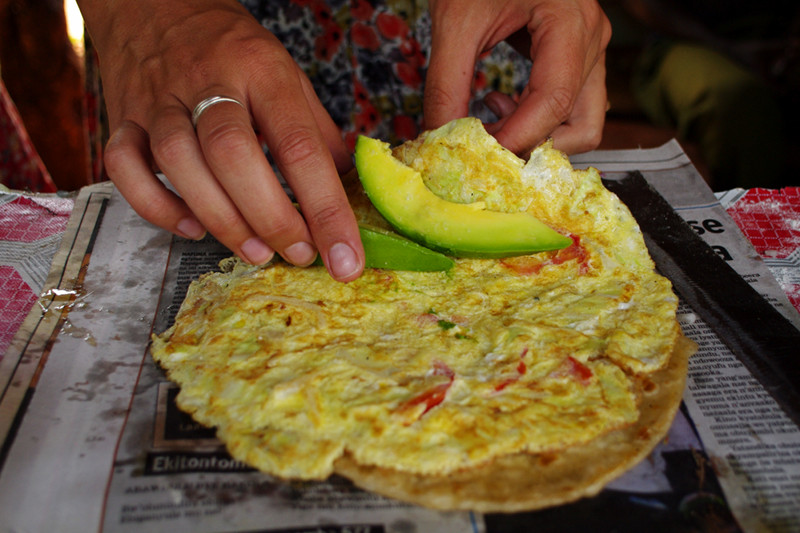
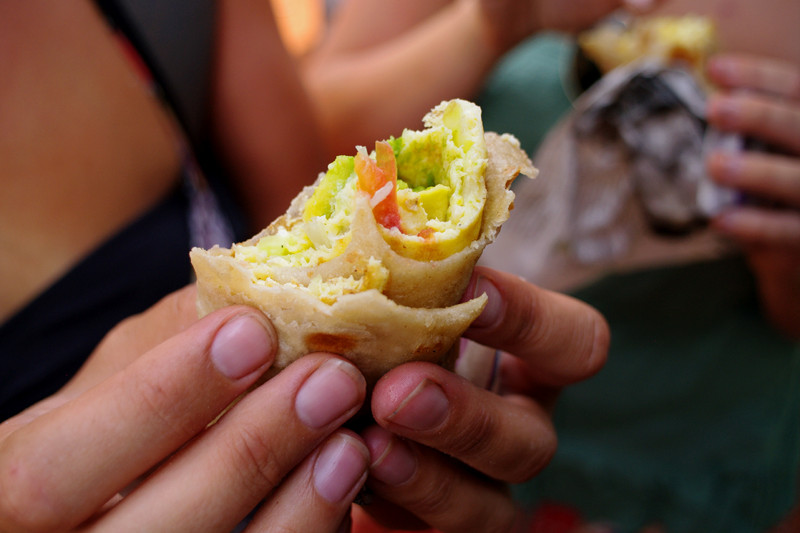
Aaaaah! I just got back from a two month stay in Uganda, where I seem to have left my heart. I got a great lesson much like the one you describe here from the guy I bought rolex’s from on almost a daily basis. Can’t wait to go back! I miss everything about the country so much. In fact, seeing these pictures bring tears to my eyes. Thanks for posting. Amelia Nantume
Amelia, I’m glad this meant so much to you. Sounds like you need to make a rolex for old time’s sake.
I tried making these at home as we’re tasting some Ugandan foods out before we travel there in July. My first chapati weren’t terribly rollable. I decided I kept them too thick, and I rolled them out thinner, more like a crepe, and they were easier to roll up after frying in my cast iron skillet. Will continue trying to get the hang of it…but looking forward to a hands on cooking lesson once there. :)
This recipe was very very helpful! Thanks.
So helpful,thank you